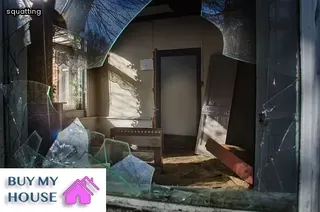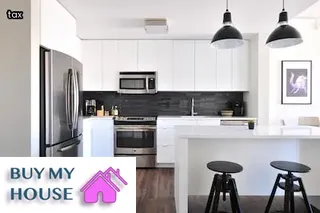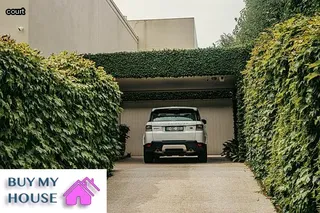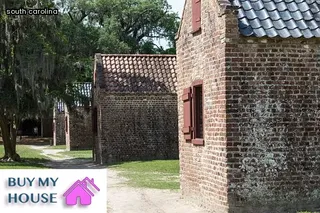Squatting is the act of occupying a property without permission from the owner. It is most commonly associated with low-income individuals who lack access to traditional housing, but can also be used as a legal strategy by those looking to gain possession of a property through adverse possession laws.
In South Carolina, squatters can gain title to a property if they meet certain criteria and remain in possession for at least 10 years. To successfully claim squatters rights, the squatter must prove that they have had continuous and uninterrupted possession of the property for the required time period.
They must also demonstrate that their use was open and notorious and that it was hostile to the true owner's claim of title. The squatter must also pay all taxes connected with the property during their period of occupation or else have an agreement with the owner to do so.
Understanding your legal rights in regards to squatting is important for anyone considering occupying another person's land in South Carolina.

One of the best ways to prevent squatters from taking possession of your property in South Carolina is to make sure you are informed about your rights under adverse possession laws. Knowing what these laws say and making sure that they are properly enforced can go a long way towards keeping any unwanted occupants off of your land.
If someone has already taken up residence on your property, it may be possible for them to acquire legal title if the requirements for adverse possession are met, so understanding those requirements is critical. Make sure to check with local authorities and other resources to ensure that all relevant regulations are being followed.
Additionally, posting "No Trespassing" signs on the property and regularly visiting or inspecting it can help keep squatters from gaining a foothold in the first place.
When it comes to evicting squatters in South Carolina, there are a few best practices that should be followed. Firstly, the landowner must take reasonable steps to notify the squatter that they are occupying their property without permission.
This can be done by posting a notice of eviction on the property or sending an eviction letter via certified mail. Furthermore, it is important to research local laws and regulations regarding adverse possession as they can differ from county to county.
Additionally, if feasible, the landowner should keep detailed records of all communication with the squatter(s) during the eviction process. Lastly, consulting with an experienced attorney is advised as they will be able to provide guidance and advice tailored to the specific situation at hand.

Squatters in South Carolina are often able to successfully defend themselves against eviction through the use of common legal defenses. Adverse possession is a legal concept that states if a squatter has been living in a property for an extended period of time and meeting certain conditions, they may be legally entitled to keep possession.
The most common defense used by squatters is the 'open and notorious' rule which states that if the squatter is openly and notoriously occupying the premises, meaning they have not attempted to hide their presence on the property, then it may be considered as adverse possession. Another defense often used by squatters is 'color of title', where they can demonstrate that they believe they have some kind of legal right to occupy the land.
Additionally, squatters may argue 'payment of taxes' as another defense; if taxes have been paid on the property, it could provide evidence that they had good faith belief in their ownership rights. Lastly, squatters may also use 'statute of limitations' as a defense when claiming adverse possession; even if none of the other defenses apply, if enough time has passed since the original owner's last attempt to reclaim their rights over the property then it could be argued that their claim has expired due to statutory limitations.
Exploring adverse possession law in South Carolina is a complex endeavor that requires a detailed understanding of the legal process. Adverse possession is a way for someone to gain legal title to property they have been occupying without permission, and it's important to understand your rights as a squatter in South Carolina.
Generally speaking, a squatter must occupy the property for 20 years or more before having the ability to gain title through adverse possession. A squatter must also prove that their occupation was open and notorious and hostile, meaning that all the requirements for adverse possession were met during the length of occupancy.
Additionally, the squatter must show that they paid all taxes on the land during their occupancy which can be demonstrated by providing tax receipts or other evidence of payment. Lastly, actual knowledge by an owner of squatters' occupation of the property can bar an adverse possession claim.
A careful review of these laws will help ensure you understand your rights as a squatter in South Carolina before claiming ownership through adverse possession.

When it comes to understanding your squatter rights in South Carolina, knowing the details of adverse possession laws is key. Specifically, the question of whether color of title can be used as a defense against eviction needs to be addressed.
Color of title refers to when a person possesses land that they believe to be theirs even though there is no deed or other document proving ownership. In this case, a squatter may be able to use color of title as a defense against eviction if they are able to demonstrate that they have been in possession of the property for an extended period of time and have improved it in some way.
However, courts tend to view this type of defense skeptically due to the fact that squatters do not actually own the land and are essentially trespassing on someone else's property. Furthermore, South Carolina law requires that squatters must prove with clear and convincing evidence that they possess color of title in order to successfully defend against eviction in court.
When it comes to understanding the scope of rights involved with adverse possession, it is important to understand how this legal doctrine works in South Carolina. Adverse possession gives squatters the right to take over possession of a property that they have been occupying for an extended period of time and use it as if they are the rightful owners.
In South Carolina, there are a few requirements that need to be met in order for a squatter to gain title and ownership through adverse possession. These requirements include: continuous and exclusive occupancy of the property for no less than 10 years; open and notorious occupation of the property; payment of taxes on the property; actual, visible use or occupation of the property; and lack of permission from the original owner.
Once these requirements are fulfilled, then a squatter may be eligible for ownership claims through adverse possession. It is important to understand all aspects involved when claiming rights under adverse possession laws in South Carolina in order to ensure that you are taking all necessary steps towards protecting your legal interests.

In South Carolina, tenants have the potential to become squatters through holdover tenancy. This occurs when a tenant remains in possession of property after the lease has expired, or if the tenant was never on a lease in the first place.
In this situation, the tenant can potentially acquire rights over the property under adverse possession laws. Adverse possession is a legal concept that allows for an individual to gain ownership of real estate after occupying it for a period of time and meeting certain requirements related to payment of taxes and other obligations.
In order for tenants to take advantage of these laws and become squatters, they must meet all applicable statutory requirements in South Carolina. These include paying taxes on the property, maintaining it in good condition, and residing there continuously with no interruption for at least 20 years.
If all conditions are met, then tenants may be able to gain title to the property through adverse possession, allowing them to become squatters.
In South Carolina, squatters have certain rights under the law of adverse possession. These rights are based on the length of time that a squatter has occupied the property and their efforts to maintain it.
Squatters can gain legal title to land if they meet certain criteria including entering onto someone else’s land without permission, occupying it exclusively for at least 10 years, and paying taxes or other required fees on the property. It must also be shown that they were using the property openly and notoriously as if it were their own, which means that they were not hiding their use or occupation of the property.
If all of these requirements are met, then a squatter can gain title to a piece of land in South Carolina. Additionally, a squatter may have access to limited resources on a piece of land such as timber products or minerals, provided they do not interfere with another person’s use and enjoyment of the land.
Knowing your squatters rights in South Carolina is important so you can understand what you may be able to do with a piece of property that you currently occupy without formal permission from its rightful owner.

When dealing with squatter claims in South Carolina, it is important to understand the laws surrounding adverse possession. It is essential to be aware of the legal requirements for possession of a property if you are considering taking action against an individual claiming rights to your property.
In South Carolina, an individual must meet certain conditions in order to gain title through adverse possession. These conditions include occupying the property continuously and openly for at least twenty years, paying taxes on the land, and using the land as if they were its rightful owner.
Additionally, all occupants need to also be aware that a court action must be filed within three years of discovering a squatter has taken up residence on your land or else they may gain legal right of ownership over it. As such, it is imperative to seek legal advice early on and take action quickly when dealing with squatters in South Carolina.
Understanding the tax implications of claiming squatter's rights in South Carolina can be a difficult task for those unfamiliar with the law. It is important to note that adverse possession laws vary from state to state, so it is essential to research the specific laws of South Carolina before filing any paperwork or making any claims.
Generally speaking, a squatting party who has been granted title to the property through the statutory period may be subject to taxes such as property tax, income tax, and any transfer taxes due on the real estate. Additionally, if title is transferred due to adverse possession, there may also be gift taxes owed by both parties.
It is best practice to consult a qualified attorney or tax professional when dealing with these types of matters as they can provide expert advice and assistance in understanding your rights under South Carolina law.

Landlords in South Carolina should be aware of the laws surrounding squatting and adverse possession. Squatting is when a person moves into a property without the landlord's permission and typically without any form of rental agreement.
While squatters may have some rights to occupy the property, landlords need to know that they are not powerless in protecting their property from being taken unlawfully. For starters, it is important for landlords to make sure their properties are properly posted with "No Trespassing" signs.
Additionally, landlords should make sure no one is allowed entry onto their property unless they are authorized by the landlord or given express permission. Landlords should also be aware of the state's statutes concerning adverse possession.
Adverse possession allows a squatter to gain legal title to the real estate if they meet certain criteria such as living on the land continuously for at least ten years and making improvements like building a fence or planting crops on it during that time. In order to prevent squatters from potentially claiming title through adverse possession, landlords should take legal action as soon as possible upon discovering unauthorized occupants on their property.
As a landlord in South Carolina, it is important to understand your rights when it comes to adverse possession laws and squatters. Having the right legal documents can help you protect your property and prove ownership in the event of a dispute.
The most important document to have is the deed that establishes ownership of the property. You should also keep records of all rental agreements, payment histories, and any correspondence with tenants.
Additionally, having photographs or video evidence can help support your claim if needed. Finally, be sure to check state and local regulations regarding occupancy laws as they can vary depending on where you live.
Understanding these regulations will help ensure that you are following the correct procedures in order to maintain ownership of your property.

When renting to tenants in South Carolina, it is important to minimize the risk associated with adverse possession. One way to do this is by researching the local laws and statutes related to squatting, which can be found through a public records search.
Additionally, it is wise to include an anti-squatting clause in the lease agreement that clearly details the rights and responsibilities of both parties. This should include restrictions such as requiring tenants to provide written notice prior to entering or occupying the property.
Additionally, landlords must communicate regularly with their tenants and take prompt action when they are made aware of any violations of their agreement. It is also beneficial for landlords to create a detailed record of all communication between them and their tenant, including any notices sent or received.
Finally, if the tenant does not abide by the terms of their lease agreement, it may be necessary for the landlord to take legal action in order to protect their rights and interests.
In South Carolina, local ordinances can play a major role in disputes over property ownership. In cases of adverse possession, which is an established legal doctrine that allows someone to gain title to someone else’s land through open, exclusive use for a certain period of time, local ordinances can have the power to supersede state laws and create a unique set of rules for the dispute.
For example, in some jurisdictions within South Carolina, the amount of time required for someone to claim adverse possession may be longer than what is outlined by state law. Additionally, while certain types of behavior may constitute adverse possession according to state legislation, local ordinances may limit it further or even make it impossible altogether.
Therefore, when trying to understand your squatter's rights in South Carolina and how they might impact your ability to claim ownership of a piece of land through adverse possession, it is important to take into account any existing local ordinances that could affect the outcome.

When it comes to property disputes and squatting, South Carolina law enforcement typically looks to the state's adverse possession laws to determine the rightful owner of a piece of property. Local law enforcement will investigate any potential adverse possession claim and may require further evidence from both parties regarding their use of the land.
In cases where squatting is involved, local law enforcement will often review relevant documents such as title searches, deed records, and tax records to determine who has been occupying the land in question. If there is no clear legal owner identified through these documents, then the dispute will be decided by a court of law or through arbitration.
Law enforcement officers may also assist in preventing conflicts between neighbors over property lines or ownership rights by providing mediation services and guidance on how best to resolve any issues that arise.
Yes, South Carolina does have squatters rights. Squatters are people who occupy land that they do not own or rent, without the permission of the legal owner.
In South Carolina, this is referred to as "adverse possession" and can be legally established after seven years of continuous occupation. In order to qualify for adverse possession in South Carolina, a squatter must prove that he or she has been in open, notorious, hostile and exclusive possession of the property for more than seven years; that all taxes have been paid on the property; and that there is no written agreement with the true owner allowing them to stay on the property.
If these conditions are met, then a court may grant adverse possession and title will be transferred to the squatter. It is important to understand that squatting laws vary by state in South Carolina so if you are considering this type of living arrangement, it is wise to consult an attorney or real estate professional before proceeding.

If you find yourself in the unfortunate situation of needing to evict a squatter from your property in South Carolina, there are certain steps that must be taken. First, it is important to understand the laws related to adverse possession, as these may limit your ability to remove the squatter. Adverse possession is a legal doctrine that allows someone who has been occupying land for a certain period of time with certain characteristics (e.
, paying taxes, notifying neighbors) to acquire ownership of that land from its rightful owner. In South Carolina, squatters must have been in continuous occupation for twenty years before they can claim ownership rights under this law. If you believe an individual is living on your property without permission, it is essential to take action quickly so as not to allow them the opportunity to establish their right through adverse possession.
You should contact local law enforcement and provide evidence of your ownership rights such as property deeds or tax statements. Additionally, you should also document any damage or illegal activities that may be occurring due to the squatter’s presence on the property. Once all necessary documentation has been compiled, the next step is filing an eviction notice with the court system and serving it upon the squatter.
This will alert them of their obligation to vacate your property within a specified timeframe; failure to do so could result in legal action being taken against them. Evicting squatters from your South Carolina property can be complicated and time-consuming process; however, understanding your state’s adverse possession laws can help ensure you take all necessary steps for successful removal.
In South Carolina, you can claim squatters rights through the legal process of adverse possession. To do so, you must meet a set of requirements that vary from state to state.
In South Carolina, a squatter must possess the land for at least 10 years and pay all taxes due on the property during that time. The squatter must also show intent to take ownership by making improvements to the property such as building structures or tending to landscaping.
Additionally, they must openly occupy the land and not be in hiding from its true owner. If all these conditions are met, then a court may grant you ownership of the land and award you with title to it under adverse possession laws in South Carolina.
In South Carolina, the statute of adverse possession is outlined in the state's Code of Laws, Title 15, Section 29.
Generally speaking, a person can acquire title to the land they occupy through an uninterrupted period of possession that meets certain criteria.
To qualify for adverse possession in South Carolina, one must prove: (1) actual and visible occupancy; (2) exclusive and continuous use for at least 10 years; (3) open and notorious use of the property; (4) payment of all taxes assessed against the property during the period of occupancy; and (5) hostile claim, meaning that it was done without permission from the legal owner.
If these conditions are met, then a court will grant title to the land to the squatter who has occupied it for ten consecutive years.
A: In South Carolina, the land owner can file an ejectment action against the claimant and any tenant at will to reclaim their property.
A: The landowner must serve the trespasser with a Notice to Quit, giving them 30 days to vacate the premises. If the trespassers remain after this time period, the landowner may use legal means to have them evicted.